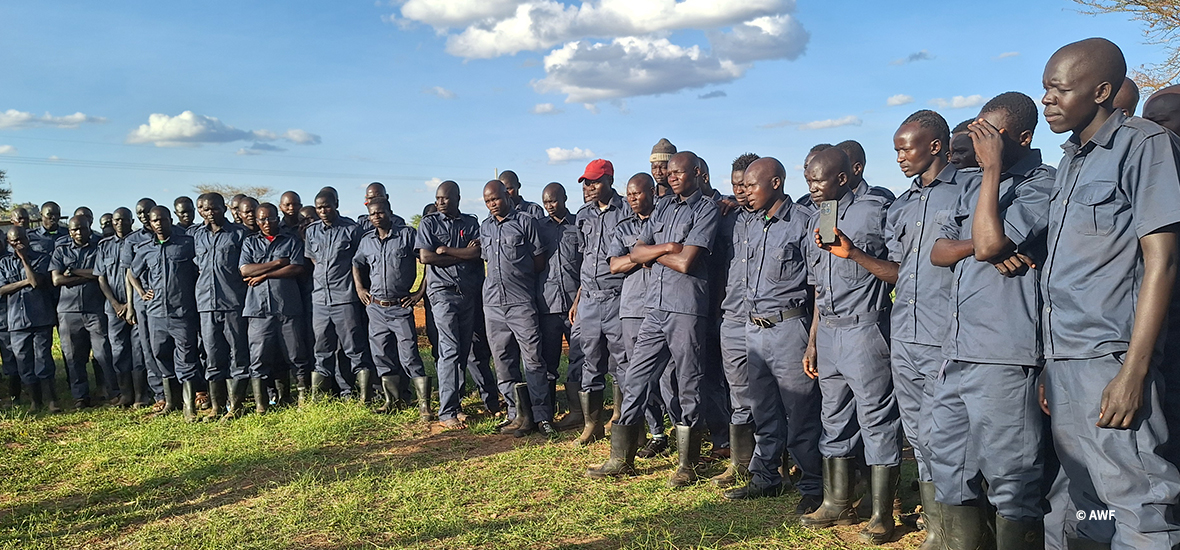AWF Empowers Community Wildlife Scouts to Help Address Human-Wildlife Conflict in Kidepo

The African Wildlife Foundation (AWF) is making significant progress in mitigating Human-Wildlife Conflict (HWC) in the Kidepo landscape, Uganda. In collaboration with the Uganda Wildlife Authority (UWA), AWF trained and equipped 80 Community Wildlife Scouts with innovative mitigation measures and tools last month. This initiative empowers local communities to manage their environment and coexist peacefully with wildlife.
The captivating Kidepo landscape, renowned for its biodiversity, is situated in Northern Uganda, bordering Kenya and South Sudan. However, despite its natural splendor, 70% of Kidepo's wildlife roams community lands beyond protected areas. These communities heavily rely on subsistence agriculture and livestock, making them vulnerable to economic losses from wildlife incursions, which can even lead to injury or loss of life.
According to UWA, 4,084 local administrative units surrounding the Kidepo Valley Conservation areas are affected by human-wildlife conflicts.
Last month, community wildlife scouts from Lokori and Lobalangit sub-counties underwent an extensive three-day Training of Trainers (TOT) program. The training, supported by AWF, covered various aspects, including first aid, animal ecology, HWC mitigation methods and tools, the scouts’ working environment, and culture. The scouts were also provided with an electric horn that can amplify sound depending on the radius within which the elephants may be, protecting them from potential injuries.

This intervention is crucial because conservation efforts beyond protected areas rely heavily on the collaboration of local communities living alongside wildlife. The Community Wildlife Scouts model, supported by AWF, stands out as the most cost-effective approach. These scouts play a pivotal role as the primary responders in mitigating Human-Wildlife Conflict (HWC) and swiftly sharing information to minimize damages caused by crop-raiding wildlife.
Now equipped with knowledge, these dedicated scouts will train communities and deter problem animals. Wilson Lochilla Apega, a 25-year-old scout in this cohort, affirmed, “I will encourage my community members to grow chili around their gardens to deter elephants. This, complemented with other methods like chili blocks and the use of electric horns, will reduce HWC incidents.”
Richard Muhabwe, the UWA Chief Warden in Kidepo, stated, “We are a month away from the planting season, which makes this training very timely. We appreciate AWF for always supporting UWA and local communities. The additional 80 scouts are a great addition to the existing scouts, and their footprint in the two sub-counties, which are HWC hotspots, is now better.”
For over 12 years, AWF has been promoting harmony between communities and wildlife in the Kidepo landscape through proactive measures and innovative solutions. These interventions include training CWS, conservation education, and improving community livelihoods. These efforts have transformed communities into conservation cadres, securing a future where humans and wildlife thrive.